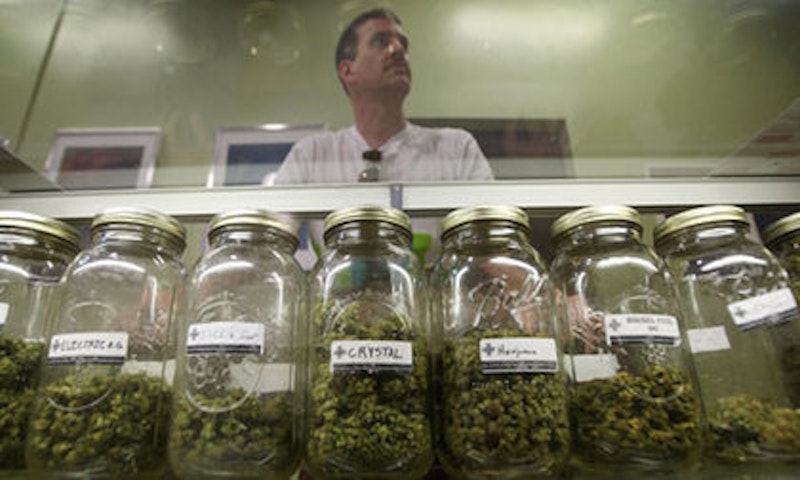Last week I flew to Colorado. Soon after I arrived in Boulder, I strolled down to the local marijuana retail store. I haven’t been a pot smoker since my 20s, but how could I leave Colorado without checking it out? Outside the building is a sign that says “Welcome to Terrapin Station,” perhaps a reference to the Grateful Dead album. Underneath the sign, in smaller letters, were the words “Care Station.” I got a chuckle out of both.
Once in the door you’re required to show your ID to a security officer and then go to the reception room. It reminded me of my dentist office: comfortable couches and chairs, soothing light green painted walls and a receptionist desk. You take a number from a red ticket taker, not unlike the ones at the supermarket deli.
The friendly receptionist hands you a pamphlet, kind of like a sushi carryout. The customers were a mixed crowd. There were hikers with backpacks, men in suits and ties and one sweet looking grandmother type, all sitting around filling out their orders. There was also a long line at the indoor ATM machine for the cash only business that includes a 21.8 percent state sales tax.
A young, enthusiastic salesperson walked me through the menu. It’s divided into three sections. The first is Sativa Dominant, which was described as a great daytime buy, giving you more of an energetic, cerebral head high. The next was Indica Dominant, which is more of a body stone and also prevalant in medicinal uses. Each of those is divided into Bargain Shelf, House Shelf and Top Shelf, reminding me of a wine tasting without the sampling. Each of these is divided into choices depending on what you are looking for, your day’s activities and also your tolerance level. These include names like Willie’s Wreck, Banana Kush and Church, the last being the hybrid choice of my salesperson. The third of the products are the Edibles like Boulder Nutty Bars and Dixie Dew Drops. These are totally different animals and one of the benefits is that you can control the dosage.
Once informed, you are escorted into the showroom. Here no more than four customers at at time are paired with a budtender who shows you the wares and gives you small containers of the recommended strains to smell and examine as you make your decision. I was given assurances that all the cannabis was locally grown unlike the Russian cartel shop down the street. The owner of this particular location had helped create Amendment 64. When you make your purchase, the cannabis comes in plastic childproof containers that have warning labels on the back. It’s all very civilized and professional.
This was probably business as usual for Coloradan consumers, but for me, the whole experience was a bit weird. In fact, as I was leaving, I thought the part of the visit that felt oddest to me was the perfectly normalized commercialization of a product that I had not really previously thought of as a legal commercial product. Suddenly, there were brands, and granola and fancy foil wrapped candy bars that look like they came out of a Willy Wonka factory.

